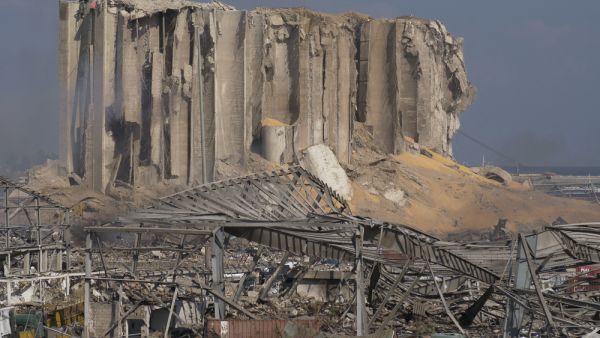Lebanon says it will demolish grain silos at Beirut port that were severely damaged in an enormous explosion in August because they are at risk of collapse.
"The grain silos are damaged and more precisely, they pose a risk to public safety," the caretaker economy Minister Raoul Nehme said in a press conference on Thursday, citing an assessment by experts.
"It is necessary to demolish them to avoid any further problems," he said, adding that the army will carry out that task, supported by experts.
Lebanon built the grain silos in the late 1960s with a loan from Kuwait.
The gutted silos, which had a storage capacity of more than 100,000 tonnes, have become emblematic of the catastrophic port blast, which took place on August 4 and has been widely blamed on government negligence.
The disaster – Lebanon's worst in peace-time – killed more than 200 people, injured at least 6,500 others and ruined swathes of the capital.
Authorities say the blast was caused by a shipment of ammonium nitrate fertiliser that caught fire, years after it was impounded at the port.
Nehme's announcement came as heavy rains battered Beirut, where homes damaged by the blast are at risk of further collapse.
A vacated building in the working class Karantina district collapsed on Wednesday due to heavy rainfall.
Nehme said that the silos contained 45,000 tonnes of grain before the explosion but experts have determined that remaining quantities are not safe for human or animal consumption.
As a result, the reserves will be disposed of in a safe manner that will not increase the risk of the silos' collapse, he said.
This article has been adapted from its original source.








